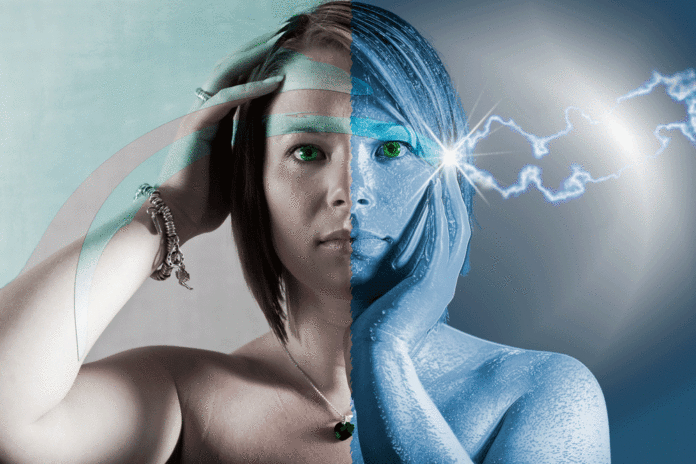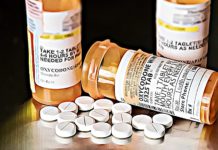According to the National Institute of Mental Health, 18.1 percent of the adult U.S. population — or approximately 43.6 million adults — suffer from some type of mental illness, and approximately 7.9 million Americans have a “dual diagnosis,” meaning they suffer from both mental illness and a drug and/or alcohol addiction simultaneously.
However, in some cases, symptoms that could indicate a separate mental illness could be primarily or exclusively the result of the drug and/or alcohol abuse. Thus treatment for both could be accomplished by first treating the addiction.
Separating mental illnesses like clinical depression from an ongoing addiction can be difficult, because the symptoms of the two can be nearly identical. In a paper for the National Institute for Alcohol Abuse and Alcoholism, doctors Ramesh Shivani, R. Jeffrey Goldsmith, and Robert M. Anthenelli wrote that, “alcoholism can complicate or mimic practically any psychiatric syndrome seen in the mental health setting at times.”
The authors of the paper further noted that this can “[make] it difficult to accurately diagnose the nature of the psychiatric complaints.”
Notably, people suffering from an untreated addiction can often be thought to have bipolar disorder. Indeed, addiction and bipolar are often comorbid (the presence of one or more additional diseases or disorders co-occurring with a primary disease or disorder), with untreated drug use exacerbating the depressive disorder, and vice versa, in a terrible feedback loop. Forty-one percent of bipolar patients can be classified as drug dependent and 46 percent alcohol dependent.
But the similarity of the symptoms, especially when the patient is still abusing drugs and/or alcohol, can make an accurate diagnosis rather difficult. A misdiagnosis could result in the improper prescription of antidepressants a patient does not need.
The question is a tricky one to untangle, but it is one worth exploring: how often is the causative issue of symptoms like depression and anxiety the result of an untreated addiction and not a separate mental illness like bipolar or clinical depression?
Dr. Anna Lembke, an assistant professor of psychology and behavioral sciences at Stanford and chief of the Stanford Addiction Medicine Dual Diagnosis Clinic, said that in cases of dual diagnosis, it is important to, “examine how a patient does in a period of sustained sobriety, or a sustained abstinence from that substance” to determine whether a mental illness is present, or the symptoms are being caused by the drug/alcohol usage.
Concerning a timeframe of sobriety, Dr. Lembke said that, “Typically, according to the DSM (The Diagnostic and Statistical Manual of Mental Disorders), you want at least four weeks … which is the bare minimum for the brain to recalibrate to the absence of the drugs. The first few weeks of abstinence is acute withdrawal, which is characterized by symptoms that look a lot like various psychiatric disorders, like anxiety, depression, insomnia and irritability. So in order to differentiate, you need a minimum of four weeks.”
While four weeks of sobriety can ease symptoms, Lembke still notes that short abstinence period will not necessarily ease all symptoms. “For example, insomnia can last up to 18 months after stopping heavy daily alcohol abuse,“ she said. “So I always caution my patients to be patient.”
Lembke cited a 1988 study of 191 people suffering from alcoholism, which found that after four weeks of abstinence the incidence of clinical depression amongst the group dropped from 42 percent to just six percent.
One challenge for doctors is the difficulty in discerning whether or not a patient is hiding their drinking or drug use. In Dr. Marilyn Freimuth’s paper “Addiction Screening in Psychotherapy for Continuing Education in Psychology,” she noted that it is easy for patients to fake answers to standard addiction screeners, often out of a sense of shame over an addiction. She also noted that addiction is often misunderstood as a false either/or conundrum, when problematic substance usage can occur in varying degrees of severity.
Lembke noted that the absence of an extended period of sobriety in a patient’s history can also indicate that their symptoms are being greatly exacerbated, if not outright caused, by addiction. This requires questioning a patient on their history of substance use.
“However,” Dr. Lembke cautioned, “retrospective narratives are notoriously unreliable. If you ask someone suffering from psychiatric problems who is also abusing drugs what came first — the drug use or the psychiatric problems — they will almost universally say it was the psychiatric problems, and they were ‘self-medicating.’ But in fact when you try to corroborate those stories, that’s often not the case, and that typically (the drug use and the symptoms) started concurrently.
“Which is not to say it’s proof that the substance abuse caused the psychiatric problems,” Lembke said. “But it also not definitive proof that… (continue reading)
















